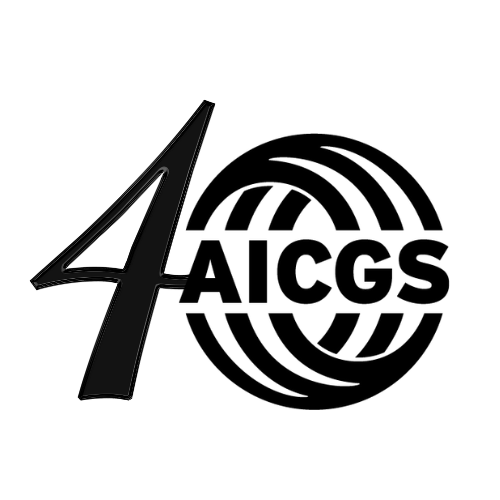
Lena Ganssmann
The AGI at Forty Series

Eric Langenbacher
Senior Fellow; Director, Society, Culture & Politics Program
Dr. Eric Langenbacher is a Senior Fellow and Director of the Society, Culture & Politics Program at AICGS.
Dr. Langenbacher studied in Canada before completing his PhD in Georgetown University’s Government Department in 2002. His research interests include collective memory, political culture, and electoral politics in Germany and Europe. Recent publications include the edited volumes Twilight of the Merkel Era: Power and Politics in Germany after the 2017 Bundestag Election (2019), The Merkel Republic: The 2013 Bundestag Election and its Consequences (2015), Dynamics of Memory and Identity in Contemporary Europe (co-edited with Ruth Wittlinger and Bill Niven, 2013), Power and the Past: Collective Memory and International Relations (co-edited with Yossi Shain, 2010), and From the Bonn to the Berlin Republic: Germany at the Twentieth Anniversary of Unification (co-edited with Jeffrey J. Anderson, 2010). With David Conradt, he is also the author of The German Polity, 10th and 11th edition (2013, 2017).
Dr. Langenbacher remains affiliated with Georgetown University as Teaching Professor and Director of the Honors Program in the Department of Government. He has also taught at George Washington University, Washington College, The University of Navarre, and the Universidad Nacional de General San Martin in Buenos Aires, Argentina, and has given talks across the world. He was selected Faculty Member of the Year by the School of Foreign Service in 2009 and was awarded a Fulbright grant in 1999-2000 and the Hopper Memorial Fellowship at Georgetown in 2000-2001. Since 2005, he has also been Managing Editor of German Politics and Society, which is housed in Georgetown’s BMW Center for German and European Studies. Dr. Langenbacher has also planned and run dozens of short programs for groups from abroad, as well as for the U.S. Departments of State and Defense on a variety of topics pertaining to American and comparative politics, business, culture, and public policy.
__
How the Society, Culture, and Politics Program Has Evolved
The American-German Institute at Johns Hopkins University is celebrating its 40th anniversary this year. Founded during the last stage of the Cold War in 1983, AGI has fostered research and policy discussion about the pressing issues in Germany and for the transatlantic relationship. Over the course of these four decades, concerns have obviously shifted and evolved considerably—especially those covered by the Society, Culture, and Politics program. In the 1980s, for instance, looking behind the iron curtain into the German Democratic Republic was necessary. Western Germans talked about guestworkers, the fear of unemployment, and the radicalism of the newly-founded Green party. After unification, the integration of eastern Germany, the achievement of “inner unity,” a European currency union, and the reorientation of German foreign policy were on the agenda. Around the turn of the millennium, economic stagnation, increased immigration, and growing frictions with U.S. foreign policy around the global war on terror and the invasion of Afghanistan and Iraq dominated attention. The serial crises of the last decade over the Euro, migration, and the COVID-19 pandemic seized the agenda, as well as unprecedented transatlantic tensions during the Trump administration and the rise of right-wing populism across the West.
 As much change as there has been, AGI has always devoted attention to important constants in postwar Germany. First and foremost has the been the stability and quality of German democracy and the rule of law—more recently concerns about these issues in the United States have also come to the fore. Equally as important has been the evolution of Germany’s collective memory and culture of contrition. We have always researched these myriad effects on the transatlantic relationship, on German efforts to promote reconciliation with countries and groups tormented by the Nazi regime, and on the impact on Germans’ values and policies domestically. Finally, analyzing demographic change in a country utterly transformed by migration, European integration, and aging since the 1980s has always been one of our main concerns.
As much change as there has been, AGI has always devoted attention to important constants in postwar Germany. First and foremost has the been the stability and quality of German democracy and the rule of law—more recently concerns about these issues in the United States have also come to the fore. Equally as important has been the evolution of Germany’s collective memory and culture of contrition. We have always researched these myriad effects on the transatlantic relationship, on German efforts to promote reconciliation with countries and groups tormented by the Nazi regime, and on the impact on Germans’ values and policies domestically. Finally, analyzing demographic change in a country utterly transformed by migration, European integration, and aging since the 1980s has always been one of our main concerns.
On the occasion of AGI’ss 40th anniversary, the Society, Culture and Politics Program would like to use this as an opportunity to reflect on four decades of our work. For this anniversary series, we will select issues that were big foci at various points of our history and return to them. We will look at how the issue or policy area was presented then, how it has evolved until now, and, prospectively, where we think the issue will be headed in the future. Wherever possible, we will ask the experts responsible for the original work to weigh in or to update their original conclusions. We envision a series of webinars, podcasts, and in-person events, as well as a variety of articles for our website and Advisor newsletter.








